Lebanon Christian Cleric Urges Control Over Hezbollah’s Weapons
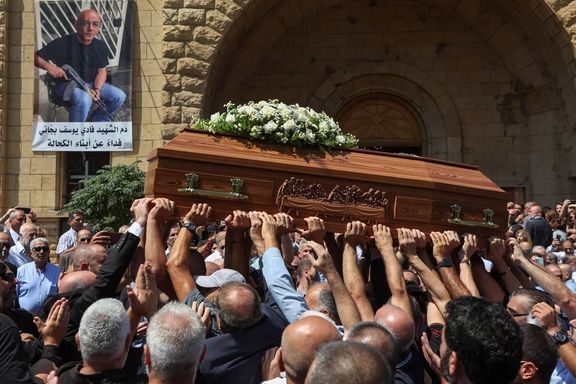
Lebanon's top Christian cleric has called for state control over weapons following a deadly clash between Christian villagers and the heavily armed Iran-backed group Hezbollah.

Lebanon's top Christian cleric has called for state control over weapons following a deadly clash between Christian villagers and the heavily armed Iran-backed group Hezbollah.
A Hezbollah member and a Christian resident were killed in Wednesday's exchange of fire in the village of Kahaleh, near Beirut, which began when a Hezbollah truck carrying ammunition turned over while driving through the area.
It was the deadliest confrontation between the Iran-backed Hezbollah and Lebanese who oppose it since clashes in Beirut two years ago, further rocking the stability of a country already suffering deep political and economic crises.
In his sermon on Sunday, cleric Patriarch Bechara Boutros al-Rai called for "all parties" and other elements of the country "to unite under the banner of the state, especially regarding the use of weapons".
"It is not possible to live on one land with more than one state, more than one legitimate army, more than one authority, and more than one sovereignty," Rai said, in an apparent reference to Hezbollah's arsenal.
Hezbollah, founded by Iran's Revolutionary Guards in 1982, is Lebanon's most powerful group. Its arsenal has long been a point of conflict in Lebanon, where its opponents accuse the group of undermining the state.
Lebanon has been suffering a four-year-long financial collapse that has marked its most destabilizing episode since the 1975-90 civil war. It was caused by decades of corruption and profligate spending by ruling politicians.
(Report by Reuters)
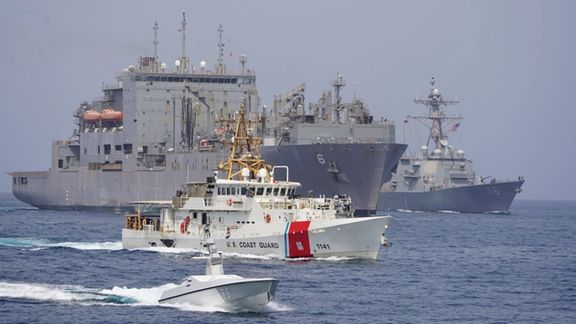
Days after a hostage deal freeing $6 billion in Iranian funds, the US Navy has warned ships in the Persian Gulf to stay away from Iran’s waters to avoid possible seizure.
The stark warning shows tensions remain high in and around the Strait of Hormuz, where Iran seized tankers in late April and early May, while Washington and Tehran are implementing a deal to free five US citizens held hostage in Iran and the US allowing $6 billion in Iranian funds held in South Korea to be unfrozen. The US Navy has warned in recent weeks that the Islamic Republic staged more than 15 attacks and seizures of vessels in the past two years.
"The International Maritime Security Construct is notifying regional mariners of appropriate precautions to minimize the risk of seizure based on current regional tensions, which we seek to de-escalate," Commander Timothy Hawkins, spokesman for the Bahrain-based US Fifth Fleet, said late on Saturday.
"Vessels are being advised to transit as far away from Iranian territorial waters as possible."

The warning also shows that Washington has little trust in Tehran’s intentions, even though they have secretly negotiated the latest deal. Some sources say that the agreement goes beyond freeing the hostages, and the United States will agree to the release of all Iranian funds frozen abroad, including in Iraq ($11 billion) and Japan ($3billion) in exchange for Tehran agreeing not to enrich uranium beyond 60-percent purity. Tehran is said to have already accumulated enough enriched uranium for producing at least two nuclear bombs.
The Biden administration has been beefing up US forces in the Persian Gulf region for weeks, deploying F-16 and F-35 warplanes, additional naval vessels, and Marines, as it has been working on the deal with Iran. The US on August 1 offered to provide armed troops to commercial vessels transiting the Strait of Hormuz, a narrow waterway where it is difficult to stay far away from Iran’s territorial waters.
Iran has also been putting up a show of force in recent weeks. The Islamic Revolutionary Guard (IRGC) held drills around three Iranian islands in the Persian Gulf contested by the United Arab Emirates, and claimed that it has added a 600-kilometer-range new missile to its arsenal “for defending the islands’ territory.”
Hossein Salami the commander of the IRGC delivered another speech on August 5, praising what he called unprecedented advances the Islamic Republic has made in naval power. In typical veiled language Salami said that “the enemy’s presence instead of posing a threat became an opportunity…and we expanded our defense and military” capabilities.
About a fifth of the world's crude oil and oil products pass through the Strait of Hormuz, a choke point between Iran and Oman at the mouth of the Persian Gulf.
If reports about a larger unwritten deal between Tehran and Washington, including issues other than hostages are true, it will come at an opportune moment for political leaders in both countries.
Some believe that President Joe Biden wants to reduce the likelihood of incidents and tensions with Tehran, especially a nuclear breakout before his re-election bid next year. Iranian hardliners who control the government, face serious economic and political challenges at home. Renewed mass protests and deteriorating economic conditions have left them with little choice but to negotiate for terms that would offer them some financial relief.
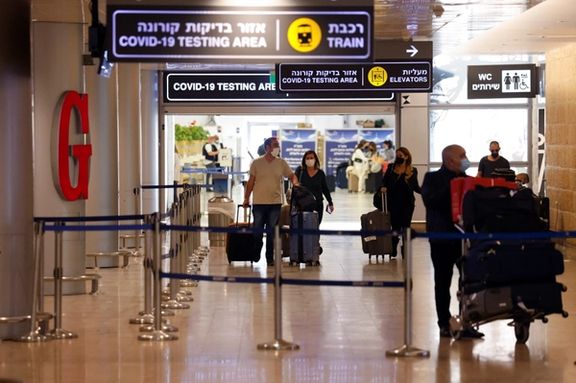
Israel's domestic intelligence agency, Shin Bet claimed on Friday to have successfully thwarted an Iranian espionage operation.
A Jewish Iranian individual was apprehended upon entry into the country with a seemingly innocuous tissue box that concealed surveillance equipment.
The detained individual, who has family ties in Israel, confessed during interrogation at Ben Gurion Airport that he had been dispatched by Iranian security operatives to spy on Israeli targets. Discovered in possession of cellphones, power banks, and currency, the individual was denied entry and subsequently deported to Iran.
"The event is indicative of a broader Iranian campaign to establish espionage and terror networks within Israel," stated the Shin Bet in an official release.
Iran's mission to the United Nations in New York abstained from immediate comment on the matter to news agencies.
In response to queries regarding the deportation rather than legal prosecution of the suspect, a security official, speaking to Reuters, elucidated that the decision took into account various operational considerations. The agency assessed that the suspect had been coerced and driven by financial incentives. The official further noted that the legal viability of prosecution was deemed "low," given the individual's non-Israeli citizenship status.
The ongoing confrontation between Israel and Iran has spanned decades, characterized by mutual accusations of sabotage and conspiracy to assassinate.
The World Jewish Congress estimates that before the establishment of the Islamic Republic Iran was home to around 80,000 Jews. Subsequently, most emigrated from the country, still leaving behind what is believed to be the largest Jewish community in the Middle East, outside of Israel.
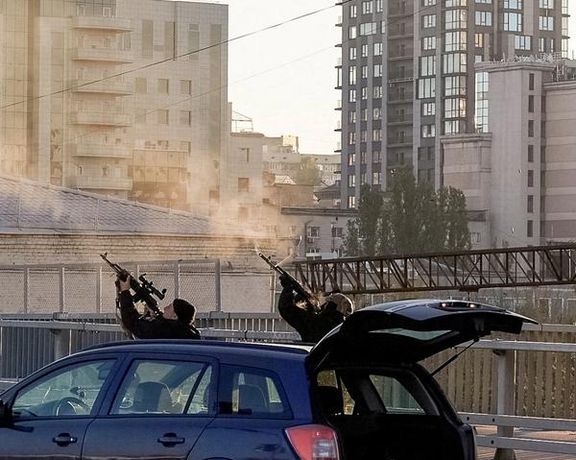
A group of European Union candidate countries have aligned themselves with a recent decision by the bloc to impose sanctions on Iran for its support for Russia's war on Ukraine.
On July 20, the EU Council adopted a decision introducing a fresh sanctions framework aimed at Iran's involvement in supporting Russia's military. This framework includes a ban on exporting components for Unmanned Aerial Vehicles (UAVs) from the EU to Iran, as well as provisions for potential travel bans and asset freezes targeting individuals connected to Iran's UAV program.
The candidate countries - North Macedonia, Montenegro, Albania, Ukraine, Republic of Moldova, and Bosnia and Herzegovina - along with EFTA members Iceland and Liechtenstein, have aligned themselves with this Council decision. This alignment signifies their commitment to adapting their national policies to reflect the provisions outlined in the decision.
The European Union commended these countries for their commitment and welcomes their alignment with the sanctions.
This alignment comes in the wake of a contentious international debate sparked by the delivery of Iranian-manufactured drones to Russia. This issue gained significant attention following Russia's invasion of Ukraine. While Iran initially refuted allegations of supplying Shahed suicide drones to Russia, Foreign Minister Hossein Amir-Abdollahian later admitted to the transfers in November 2022. He asserted that the deliveries occurred before the Ukrainian conflict commenced, and on a limited scale.
However, Ukrainian authorities strongly contested Iran's account, presenting substantial physical evidence suggesting ongoing and substantial drone deliveries from Iran.
In response to these allegations, the European Union, along with the United Kingdom, the United States, and Canada, implemented punitive measures against Iran.
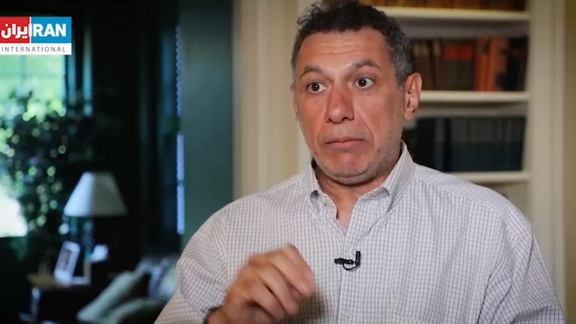
A former hostage in Tehran reveals details on the deal between Tehran and Washington to release US hostages in exchange for Iran’s frozen funds.
Nizar Zakka, a Lebanese who spent about four years in prison in Iran on trumped-up charges – like all foreign citizens held hostage in Iran – told Iran International that based on information he received from his sources the amount of money Iran is receiving as part of the deal is said to be over $10 billion, which includes the frozen funds in South Korea, Iraq and Japan.
He said there are conflicting reports on the amount of the money from Iranian and US sources, adding that it is not yet clear if all the frozen funds in Iraq, Japan and South Korea are included in the agreement. “It’s a lot of money,” he said, explaining that the funds will not go to the hands of the regime authorities, and are supposed to “go directly for humanitarian purposes through a third party.”
Iran has tens of billions of dollars worth of funds in foreign banks that it cannot access because of US sanctions. The funds are mostly kept in banks in South Korea ($7 billion), Iraq ($11 billion), Japan ($3 billion) as well as China and India where Iran is owed for shipments of crude and other oil products that took place before the United States pulled out of the 2015 nuclear deal and re-imposed full energy sanctions on Tehran in 2018 and 2019.
“We hope that this deal will put an end... this hostage business model that has been ongoing for so long,” added Zakka, who is the president of Hostage Aid Worldwide -- an NGO to support and help the release of people held hostage for unjust reasons.
The interview followed reports about the deal that will see five US citizens release from Iran in exchange for Iranian funds going from one restricted account to another, only be used for humanitarian purposes such as buying food or medicine.
US State Department spokesperson Matt Miller said, "We are relieved to learn that Iranian authorities have released five US citizens -- Siamak Namazi, Morad Tahbaz, Emad Sharghi (Shargi), and two individuals who at this time wish to remain private -- from prison to house arrest.” Iran's mission to the United Nations told Iranian state media that "Under the deal mediated by a third country, five Iranians jailed in the United States will be released and Iran's frozen funds in South Korea will be unblocked and transferred to Qatar."
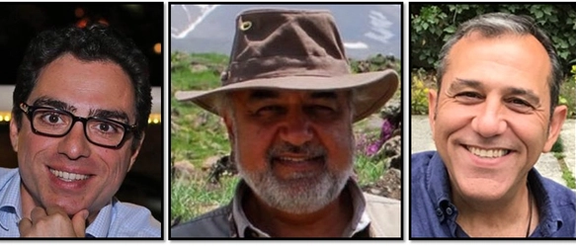
In reaction to US Secretary of State Antony Blinken's claim that he was not aware of any other Americans still detained in Iran, Zakka said "I personally had discussion and correspondence about (US permanent resident) Shahab Dalili with (former special envoy for Iran) Rob Malley and the State Department. “Everybody is very aware about Shahab's detention in Iran. I believe it may have skipped his (Blinken's) mind at a certain moment that he forgot Shahab Dalili's case exists."
"The Levinson Act does not differentiate between a US green card holder and a passport holder. We know of at least two cases of green card holders (Shahab Dalili and Jamshid Sharmahd) being charged exactly for cooperating with the US and being a US resident," he said, emphasizing that no hostages should be left behind like what happened for Siamak Namazi in 2016. “I hope this time everybody will be home, and we'll put an end to this hostage diplomacy.”
Highlighting that the Islamic Republic took two more hostages during the course of negotiations for this deal, he criticized a lack of deterrence in the deal. “Without deterrence, the Islamic Republic's hostage-taking is going to continue and happen again because they're making money out of this and have so much leverage over the West through these hostages."
Citing sources involved in the matter and close to power circles in Iran, Zakka said the deal "has something to do with the long-range missile agreement that will end next month, and this will put a pause on this as well. This will be good to calm the situation in the region especially now with Iran's supersonic missile."
If the information is right, Iran will not resume ballistic missiles tests after the expiry of the sanctions in October, will pause testing hypersonic missiles and will not transfer ballistic missiles to Russia. These issues are the points that France, Britain and Germany are using to justify retaining ballistic missile sanctions on Iran set to expire in October under the defunct 2015 nuclear deal. In early-July, the UN Security Council held a session on the Joint Comprehensive Plan of Action (JCPOA) and the implementation of resolution 2231, whose clauses are justifying keeping the sanctions in place.
Earlier in the day, an Israeli source, who wished to remain anonymous, revealed to Iran International's correspondent in Israel that the agreement between the US and the regime is not merely a tentative understanding but a comprehensive accord.
Emphasizing that the agreement carries significant ramifications, signaling a shift beyond conventional diplomatic engagements between nations, the source said the Israeli government is concerned about the expansion of the accord, like many other critics who believe the deal would embolden Iran in its hostage taking policy.
The informed source further elaborated that the agreement encompasses more intricate details, which have not yet been disclosed.
"The reason Prime Minister Benjamin Netanyahu has refrained from commenting on this agreement thus far is that he avoids acknowledging that, during his tenure, the United States and the Islamic Republic have reached an accord," the source stated.
His remarks came just hours before The Wall Street Journal reported that Iran has significantly slowed the pace at which it is accumulating near-weapons-grade enriched uranium and has diluted some of its stockpile, citing people briefed on the matter. "Iran has diluted a small amount of 60% enriched uranium in recent weeks and slowed the rate at which it is accumulating new material."
The WSJ said that US officials had hoped Tehran would stop accumulating 60% enriched uranium as one of a series of de-escalatory steps from both sides, which included the prisoners deal.
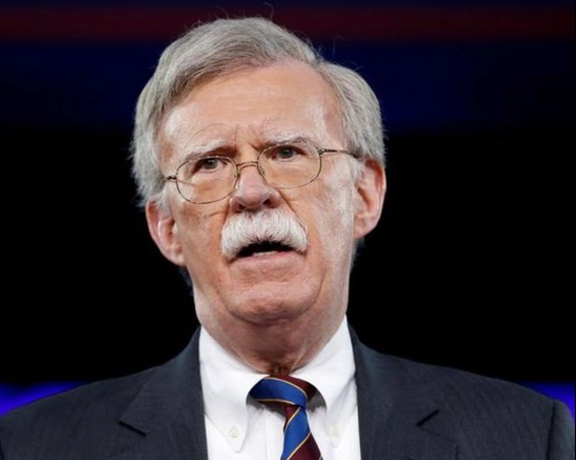
Former US national security adviser John Bolton said that the death of Iranian Supreme Leader Ali Khamenei could expose vulnerability and offer an opportunity for regime change in Iran.
Speaking at a Jerusalem Center for Public Affairs (JCPA) webinar titled "Supporting Iran’s Quest for Democracy and the Urgency of Europe Proscribing Iran’s Islamic Revolutionary Guards Corps" on Thursday, Bolton highlighted the unique window of opportunity that Khamenei's death could present for a democratic transition in the nation.
Bolton emphasized the delicate state of affairs in Iran due to the advanced age and recurrent health issues of Ali Khamenei, currently 84 years old. He noted that the absence of a clear succession plan within the Islamic Republic further exacerbates the challenges of maintaining stability during the transition of power. Bolton's analysis suggests that this critical juncture could be leveraged to weaken the influence of the Islamic Revolutionary Guard Corps (IRGC), thereby fostering a more conducive environment for democratic change.
"Pressuring the IRGC in the lead-up to and during this transition phase could expose its vulnerabilities," Bolton stated. However, he cautioned against complacency, warning that failing to address the IRGC's influence could empower the organization to exert even greater control during this transitional period.
Israeli Intelligence Minister Gila Gamliel, another prominent voice at the webinar, stressed the moral imperative of categorizing the IRGC as a terrorist organization. Gamliel urged the EU and UK to proscribe the IRGC as a means to counteract its role in terrorism and hostage-taking. She underscored that swift action is pivotal in preparing the path for a democratic Iran, allowing its people to experience freedom and self-determination.